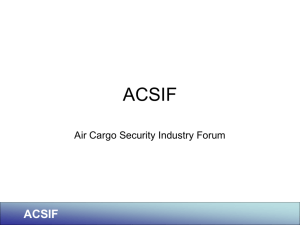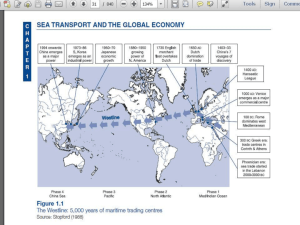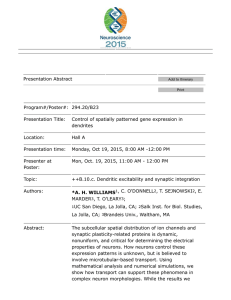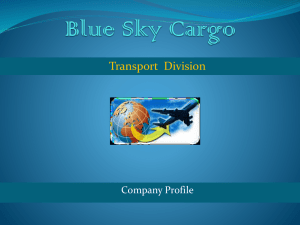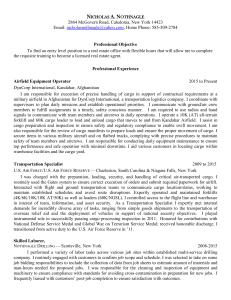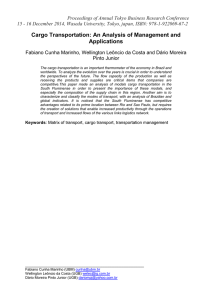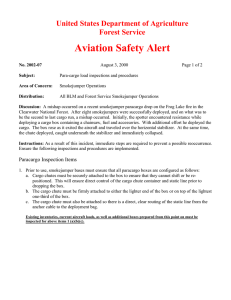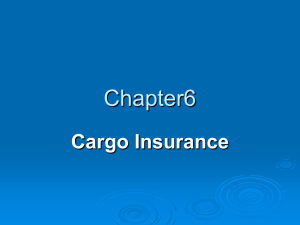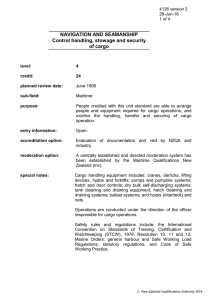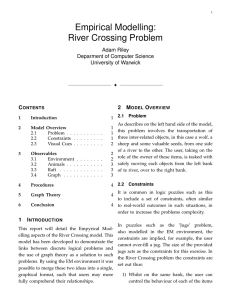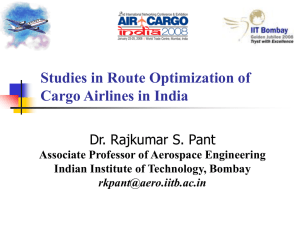Air Cargo Carriers and WMD Proliferation
advertisement
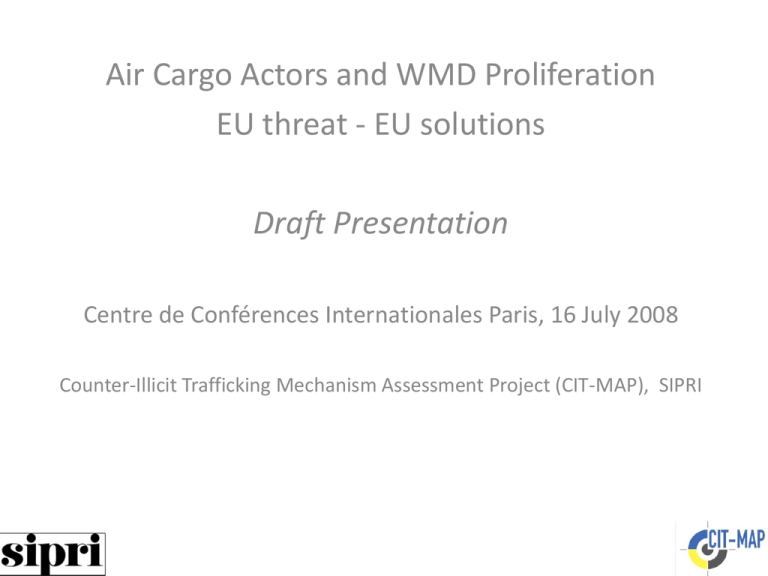
Air Cargo Actors and WMD Proliferation EU threat - EU solutions Draft Presentation Centre de Conférences Internationales Paris, 16 July 2008 Counter-Illicit Trafficking Mechanism Assessment Project (CIT-MAP), SIPRI “Some air cargo entities, straddling a grey market sector soliciting licit and illicit goods deliveries have garnered a reputation in parts of the Middle East, Africa, Eastern Europe and South West Asia for having a “no questions asked” policy.... [they] leave themselves open to exploitation by extremist groups....the practices employed by a number of air cargo entities could provide avenues for schemes involving the airborne delivery of WMD-type devices or substances consisting of nuclear, biological or chemical components.” Air Cargo entities and WMD: two threats • Assist the process of proliferation through the transportation of dual use technology, equipment and personnel. • Used as a delivery platform or vehicle for a WMD-type device to facilitate an extreme event Air Koryo Ilyushin 76, Source: Airliners.net, Air Transport Data Base (ATDB) • Air Koryo aircraft have been used to smuggle weapons, cigarettes and other commodities • In 1998 Air Koryo aircraft were used to fly technology, equipment and personnel from and to North Korea and Pakistan as part of a fissile material/ballistic missile arrangement Air cargo transit hubs include those located in United Arab Emirates, Sudan, Libya, Central Asian states, Russian Federation and Ukraine • Air cargo network structures a result of globalisation • State deregulation of administrative and legal barriers to international trade •Air cargo networks involved in illicit flows have taken advantage of financial deregulation and a lack of intergovernmental monitoring •They operate numerous front companies and use different off-shore locations and weak states to channel funds and base assets. A non-governmental air cargo network: partial view Air Tomisko Aerolift Jet Line International Asterias Artic Group Aerocom Aeronord Pecotox Air GST Aero Multiple companies in DRC, Congo EU solutions • EU solutions based around the enforcement of regulations and information-sharing between member states and neighbouring states • EU technical assistance missions, political dialogue and air safety regulation enforcement and blacklisting has achieved results • EU Joint Situation Centre (SitCen) circulates watch list of air cargo companies • Information-sharing remains in its early stages. Priority and resources could be given to focused information-sharing mechanisms between EU and certain states • Prioritisation and resources would serve EU Security Strategy and a range of political instruments and actions associated with combating illicit flows
